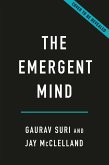This book offers the first full-length study of early modern contentment, the emotional and ethical principle that became the gold standard of English Protestant psychology and an abiding concern of English Renaissance literature. Theorists and literary critics have equated contentedness with passivity, stagnation, and resignation. However, this book excavates an early modern understanding of contentment as dynamic, protective, and productive. While this concept has roots in classical and medieval philosophy, contentment became newly significant because of the English Reformation. Reformers explored contentedness as a means to preserve the self and prepare the individual to endure and engage the outside world. Their efforts existed alongside representations and revisions of contentment by authors including Sidney, Spenser, Shakespeare, and Milton. By examining Renaissance models of contentment, this book explores alternatives to Calvinist despair, resists scholarly emphasis on negative emotions, and reaffirms the value of formal concerns to studies of literature, religion, and affect.
Dieser Download kann aus rechtlichen Gründen nur mit Rechnungsadresse in A, B, BG, CY, CZ, D, DK, EW, E, FIN, F, GR, HR, H, IRL, I, LT, L, LR, M, NL, PL, P, R, S, SLO, SK ausgeliefert werden.









